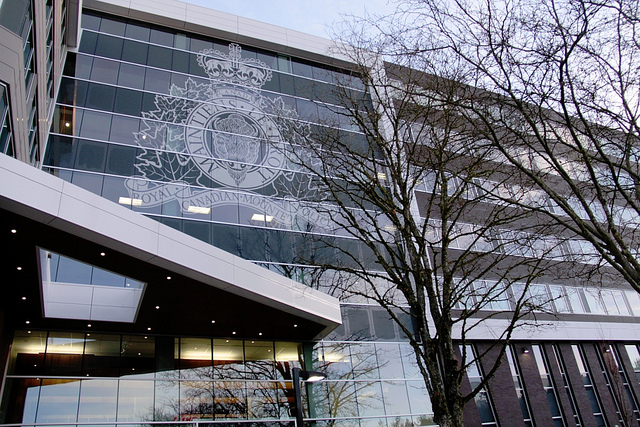Like this article? rabble is reader-supported journalism. Chip in to keep stories like these coming.
Amid several new programs targeting the middle class and infrastructure funds, the Liberal government’s first budget also dedicated some money to tackling what they called “counter-radicalization.” These tasks will be conducted by the Co-ordinator of the Office of Community Outreach and Counter-Radicalization. For this, the office will receive $3 million this year and up to $10 million in coming years.
The details of this program are still unclear, but what does the government mean by counter-radicalization? Who will be targeted? Or is this another fishing expedition among targeted communities intended to gather more information about them and increase the prevailing sense of surveillance?
Immediately, after the 9/11 attacks, Arab and Muslim communities started getting “visits” from RCMP officers and CSIS agents asking about their opinions on the Middle East, about their religious beliefs, about their friends and what they know about them. Some of these “visits” were conducted at the workplace. At that time, nobody spoke about radicalization, as if it was assumed that the targeted individuals came to Canada already “radicalized.” The Muslim community was perceived to be on the “bad” side of the fight. They were always considered as not doing enough.
After the Maher Arar case became public and following the public inquiry conducted by Justice O’Connor, things took another turn, nationally and internationally. The public safety department started a new initiative called the “Cross Cultural Round Table on Security.” I don’t how effective this initiative was and how many terrorist attacks it has prevented, but it was undeniably a PR tool to build bridges with handpicked members of the Muslim community. The new picture became: the Muslim community is invited to the table. But the perception remained: the Muslim community doesn’t do enough.
On the ground, young people didn’t pay attention at all to these political moves. They were busy on their smartphones or laptops following other stories.
How is a new office of “counter-radicalization” going to speak to a large portion of disenchanted youth? The budget doesn’t tell us how.
After the arrest of the Toronto 18, the focus of the security and intelligence community seemed to have shifted to “radicalized youth.” At that time, they were called “homegrown terrorists”: youth who grew up in Canada, who seemed to have slipped under the radar of the Muslim community and of spying and police agencies. Youth, mentioned last year by former prime minister Harper in one of his speeches, “whether they’re in a basement, or whether they’re in a mosque or somewhere else.” The Conservative government even launched a national counter-radicalization program in 2014 to stop the number of Canadian youth joining ISIS.
So the question today that Liberals are trying to answer is: “how can we talk to that Muslim kid before he goes to his basement or his mosque?”
And obviously, the reply comes with a “counter-radicalization” officer. The name changes but the philosophy of racial profiling remains the same.
It is indeed this targeting that may make young Muslims or new Muslims feel that they are not connected to their community leaders or to their mosques. It is this feeling of alienation that’s problematic. They simply don’t recognize themselves in this picture. So they would rather listen more to other leaders on the Internet. It is this obsession and media sensationalism that we have created in our societies about Islamic terrorism. An office of counter-radicalization will become another tool of stigmatization or another tool to allow self-appointed leaders of the Muslim community to speak about their views on radicalization. The biggest concern is that this sort of initiative will become another spying program on Muslim people where suspicion and rumours become facts.
The attacks in Brussels were conducted by Belgian citizens. The Paris attacks in November were conducted by French citizens. Without justifying the killing of innocent people, we have to accept that many of these attackers grew up in marginalized communities filled with poverty, unemployment and a powerless sense of the injustice in the Middle East. The attackers didn’t relate to their country of birth, they related more to the violent speeches of leaders in Iraq and Syria. The meaning of belonging and identity are being hijacked by globalization.
One common sentence heard many times from mothers of young people who joined ISIS fighters in the Middle East is: “I didn’t see this happening.” Why would an office of “counter-radicalization” see it happening? It is unclear to me.
In past decades, there were always ideologies that attracted young people. These ideologies used degrees of violence. Young Canadians were not exempt from them. Canadians joined militant groups in Franco’s Spain, in Castro’s Cuba or in Mao’s China. They were not many and no office of counter-radicalization was created.
Today, it is ISIS that is speaking to these youth. We should offer an alternative to that discourse.
Our role as a society is to offer hope, acceptance, opportunities, justice and dreams to our youth. We have to offer new horizons to them. More spying, more security and more scrutiny won’t be the solution.
This column was first published in the Huffington Post.
Monia Mazigh was born and raised in Tunisia and immigrated to Canada in 1991. Mazigh was catapulted onto the public stage in 2002 when her husband, Maher Arar, was deported to Syria where he was tortured and held without charge for over a year. She campaigned tirelessly for his release. Mazigh holds a PhD in finance from McGill University. In 2008, she published a memoir, Hope and Despair, about her pursuit of justice, and recently, a novel about Muslim women, Mirrors and Mirages. You can follow her on Twitter @MoniaMazigh or on her blog www.moniamazigh.com
Photo: waferboard/flickr
Like this article? rabble is reader-supported journalism. Chip in to keep stories like these coming.



